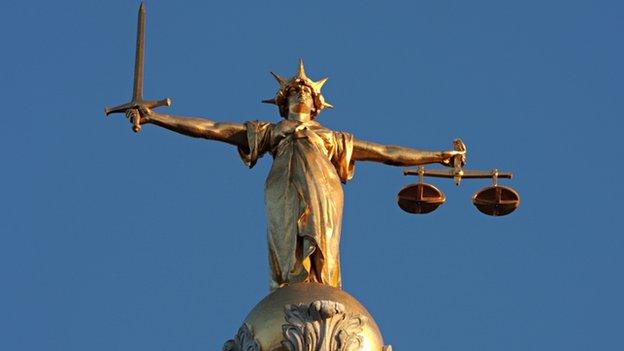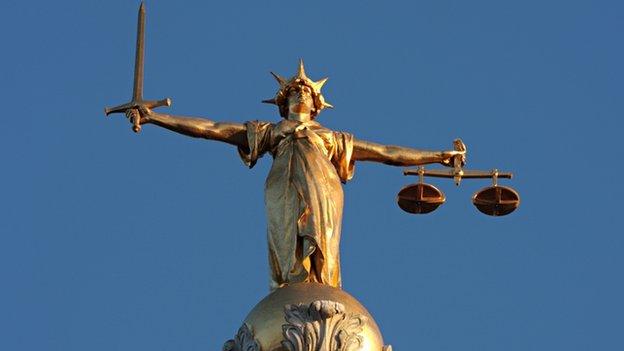Legal aid work refused by law firms in cutbacks protest
- Published

Solicitors' fees in England and Wales were cut in 2014 and are also being reduced this July
A number of criminal law firms have refused to take work funded by legal aid in protest against government cuts.
Solicitors' fees in England and Wales are being reduced by 8.75% from 1 July after they were cut by the same percentage in 2014.
The government is implementing cuts to reduce the £1.7bn bill for legal aid, which helps people who cannot afford the costs of legal advice.
Lawyer Zoe Gascoyne said the cuts "threatened" the work of legal firms.
'Grassroots work'
The Liverpool solicitor, who is spearheading the protests, denied claims wealthy lawyers were refusing to help people dependent on legal aid.
She said: "Newly-qualified solicitors with seven years' training can earn £22,000 a year for the first five years. Anyone who comes into the law for money wouldn't go anywhere near criminal law.
"We're grassroots, this is our work. We can't do it if our businesses are being threatened."
She said firms in Merseyside, Manchester, Yorkshire, Newcastle, Durham and London were refusing to take work funded by legal aid from 1 July.
A Ministry of Justice spokesman said the Legal Aid Agency had plans in place to ensure the criminal justice system would operate effectively despite the protests.
He added the cuts would be "challenging" but were "designed to ensure... a system of criminal legal aid that delivers value for money to taxpayers".
An independent review of the new arrangements would be started in July 2016, he said.
- Published10 June 2015
